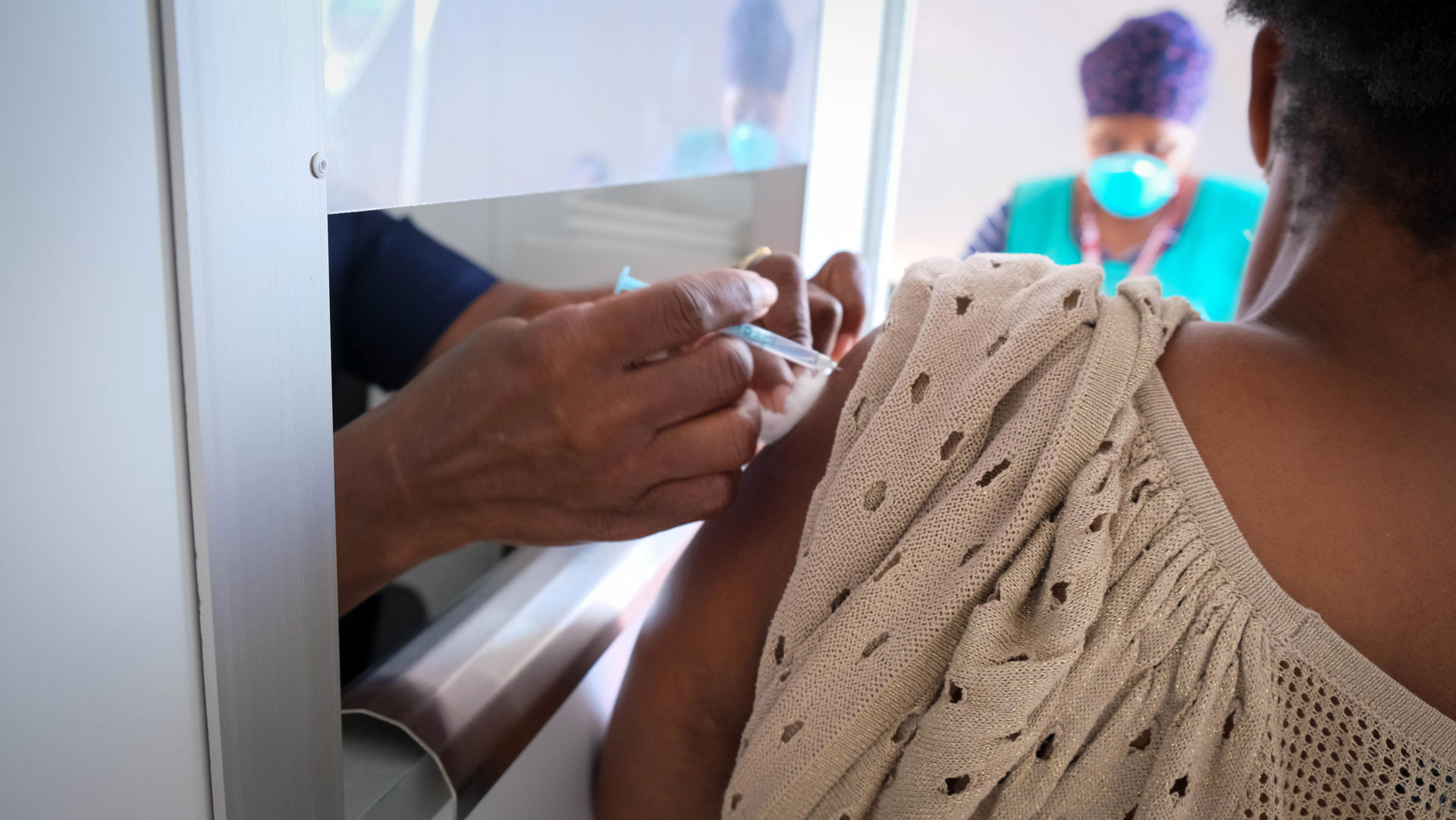On the eve of BioNTech’s annual shareholder meeting, where the German pharmaceutical corporation is expected to report billions of euros in profits from COVID vaccine sales, Médecins Sans Frontières/Doctors Without Borders (MSF) urged the German government, which supported BioNTech’s vaccine research and development with hundreds of millions of euros in public funding, to push the corporation to urgently transfer mRNA vaccine technology to manufacturers in low- and middle-income countries. MSF has identified over 100 manufacturers in low- and middle-income countries which could produce mRNA vaccines for COVID, other diseases and future pandemics, but this would require sharing of the technology and know-how.
BioNTech was given nearly €500 million in public funding by public investors (€375 million from the German Research Ministry and a loan of €100 million from the European Investment Bank) for research and development of the COVID vaccine. Meanwhile, the corporation recorded COVID vaccine sales of over €18.8 billion in 2021.
Given the significant public investment in BioNTech, the German government has an obligation to help change the global vaccine manufacturing landscape, and it must act now.
- Christian Katzer, General Director of MSF Germany.
“By urging BioNTech to transfer mRNA vaccine technology to manufacturers in low- and middle-income countries, the German government would be helping countries move toward self-sufficient vaccine production that could increase global supply and make countries better prepared for future pandemics. This would go a long way in helping to fulfill the German government’s commitments towards supporting local vaccine manufacturing efforts, as stated in many international fora and specifically in the recent G7 Development Ministers’ Meeting Communiqué.”
Local mRNA-vaccine production capacity in low- and middle-income countries would be a lifesaving future prospect for many regions of the world. In the short term, regional mRNA technology could be adapted relatively rapidly to respond to emerging COVID variants and supply needs. And in the medium-to-long term, mRNA technology could present a promising option for developing vaccines for other longstanding deadly infectious diseases, such as HIV, tuberculosis and malaria. It could also play a major role in future pandemic preparedness, especially as greater geographic distribution of vaccine production capacity is a necessary component of global disease preparedness.
The COVID pandemic has clearly shown that relying on a small number of vaccine manufacturers in high- and middle-income countries is neither equitable nor efficient when facing a global health emergency.
- Lara Dovifat, Campaigns Manager at MSF’s Access Campaign.
“The good news is that there are over 100 manufacturers in Africa, Asia and South America that have the technical potential to start producing mRNA vaccines within 6-9 months if the appropriate technology is transferred by BioNTech, which could help make the response to this and future pandemics much more equitable.”
BioNTech’s recently announced plan to establish vaccine manufacturing with the "BioNTainer” concept on the African continent over the next 3-5 years looks promising and holds potential for a region with limited manufacturing capacity today. BioNTech should also share mRNA technology with manufacturers that are currently operating in low- and middle-income countries which could receive and fully integrate mRNA production in their existing facilities.
“If BioNTech is truly committed to boosting vaccine manufacturing capacity in low- and middle-income countries, its “BioNTainer” efforts should go hand-in-hand with technology transfer to manufacturers with already existing capacity in low- and middle-income countries,” said Dovifat. “Right now, the world needs to take every single step possible to make sure that the opportunity to bolster global pandemic preparedness through sustainable, local vaccine production doesn’t slip away. And that means demanding pharmaceutical corporations like BioNTech urgently share mRNA technology.”


